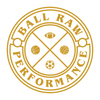Unlocking the Full Potential of Sports Nutrition and Performance
Introduction: The Symbiosis of Nutrition and Athletic Performance
In the realm of sports, performance is a currency. Athletes, coaches, and fitness enthusiasts are constantly in search of strategies to enhance physical capabilities. One of the most underutilized yet crucial components in this quest is sports nutrition. We aim to shed light on the intricate relationship between nutrition, sports performance, and how the right dietary choices can be a game-changer.
The Science Behind Sports Nutrition
Nutrition is not just about eating; it's a science that impacts cellular metabolism, muscle development, and cognitive function. Macronutrients like carbohydrates, proteins, and fats play distinct roles. Carbohydrates are the body's primary energy source, proteins aid in muscle repair, and fats are essential for hormone production. Understanding the science allows for optimized meal planning, leading to enhanced performance and quicker recovery. For instance, Ball Raw's Grass-Fed Whey Protein is an excellent source of high-quality protein that aids in muscle repair.
The Role of Micronutrients
While macronutrients get the limelight, micronutrients like vitamins and minerals are the unsung heroes. These elements are vital for metabolic processes, oxygen transport, and even muscle contraction. A deficiency in micronutrients can lead to fatigue, reduced endurance, and increased susceptibility to injury. Ball Raw's Men's Multivitamin provides base-level support for optimized nutrient levels, immune health, and hormone balance.
Hydration: The X-Factor
Water is often overlooked but is crucial for peak performance. Dehydration can lead to decreased coordination, muscle cramps, and overheating. Athletes should aim for at least 3 liters of water per day, more if training in hot conditions.
Timing is Everything: Pre and Post-Workout Nutrition
The timing of nutrient intake is pivotal. Consuming a balanced meal rich in carbohydrates and proteins 2-3 hours before exercise can significantly improve performance. Post-workout, a protein shake or a meal rich in proteins and carbohydrates can expedite muscle recovery. Ball Raw's Performance Pre-workout BCAAs can be a great addition to your pre-workout regimen.
Supplementation: A Double-Edged Sword
Supplements can be beneficial but should be used judiciously. Creatine, for instance, can improve high-intensity workout performance but is not a substitute for a balanced diet. Ball Raw's Creatine Monohydrate is a reliable option for those looking to enhance their high-intensity workouts.
The Psychological Aspect of Sports Nutrition
Nutrition also impacts mental health. Omega-3 fatty acids are known to improve cognitive function, while antioxidants like Vitamin C reduce stress by combating free radicals. A well-nourished mind is more focused, leading to better decision-making on the field.
Customization: One Size Does Not Fit All
Every athlete is unique, and so are their nutritional needs. Factors like age, gender, and the type of sport play a significant role in determining nutritional requirements. Customized meal plans based on individual needs are often more effective than generic dietary guidelines.
The Future of Sports Nutrition
Advancements in technology are revolutionizing sports nutrition. From AI-powered meal planning apps to real-time metabolic rate monitors, the future is bright. Incorporating these technologies can provide a competitive edge, making the difference between winning and losing.
Conclusion: The Road to Optimal Performance
Sports nutrition is not a standalone entity but an integral part of a comprehensive performance strategy. By understanding the science, timing your nutrient intake, and customizing your diet, you can unlock new levels of performance previously thought unattainable.



Leave a comment